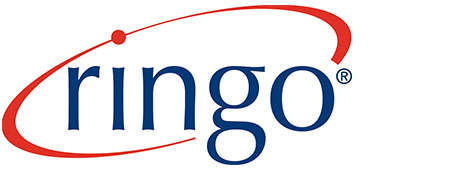Contents
Introduction
Healthcare Solutions
Whether you’re running a hospital, managing a physician contract group, or operating a healthcare staffing firm, finding the right solution to manage contingent labor can significantly impact your efficiency and bottom line. Two popular options are Vendor Management Systems (VMS) and Managed Service Programs (MSP). But how do you determine which is best for your needs? This page will explore the differences, benefits, and ideal applications for each, helping you make an informed decision.
VMS
Key Features and Advantages
What is a VMS?
A Vendor Management System (VMS) is a cloud-based technology platform designed to help organizations manage contingent labor effectively. It provides visibility, control, and analytics over temporary staffing and contract workers, streamlining the procurement and management process.
Key Features of a VMS
- Real-Time Data and Analytics: Gain insights into labor costs, compliance, and performance.
- Automated Workflows: Simplify timekeeping, invoicing, and approval processes.
- Customizable Dashboards: Tailored interfaces like Ringo Vitals allow healthcare leaders to access and export metrics effortlessly.
- Vendor Neutrality: Ensure unbiased vendor selection for optimal workforce alignment.
Advantages of a VMS for Healthcare
- Cost Savings: Average reductions of 10-25% in temporary labor spend.
- Improved Compliance: Real-time tracking of certifications, credentials, and contract terms.
- Enhanced Visibility: Access comprehensive data on labor utilization across departments.
- Scalability: Easily manage multiple locations or departments.
MSP
Key Services and Advantages
What is an MSP?
A Managed Service Program (MSP) is a third-party partner that takes over the operational and strategic management of contingent labor. MSPs combine technology (often including a VMS) with expertise to offer a more hands-on approach to workforce management.
Key Services Offered by an MSP
- Strategic Workforce Planning: Align contingent labor strategies with organizational goals.
- Vendor Management: Handle supplier relationships, negotiations, and performance.
- Compliance Oversight: Ensure all workers meet healthcare-specific credentialing and certification standards.
- Market Insights: Provide data-driven recommendations based on industry trends.
Advantages of an MSP for Healthcare
- End-to-End Management: From sourcing to billing, MSPs handle it all.
- Access to Expertise: Benefit from experienced professionals with healthcare-specific knowledge.
- Time Savings: Free up internal resources to focus on patient care and strategic priorities.
- Supplier Consolidation: Reduce complexity by managing fewer vendors.
VMS vs MSP
Choosing the Right Solution
VMS vs MSP: Key Differences
| Feature/Benefit | VMS | MSP |
| Control | Retains operational control within the organization | Outsources control to the MSP team |
| Cost | Typically lower; pay for software only | Includes service fees for management |
| Expertise | Requires in-house expertise to optimize | Provides external, specialized expertise |
| Scalability | Scalable for organizations | Scales with managed service support |
| Implementation | Faster implementation with minimal disruption | May take longer due to the integration of services |
Choosing the Right Solution for your Healthcare Organization
When to Choose a VMS
- You already have a skilled internal HR or procurement team.
- You’re seeking cost-effective, technology-driven workforce management.
- You need visibility and control over labor spend and vendor performance.
- You operate a smaller healthcare facility or staffing firm.
When to Choose an MSP
- You lack the internal resources to manage contingent labor.
- You’re seeking strategic guidance and hands-on management.
- Your facility experiences high turnover or staffing shortages.
- You manage a large, complex healthcare system.
Why not Both? The Case for Integrated Solutions
Some organizations find that a hybrid approach—leveraging both a VMS and MSP—offers the best of both worlds. By using a VMS for its technological capabilities and partnering with an MSP for operational expertise, healthcare organizations can:
- Achieve greater efficiency and compliance.
- Optimize their workforce strategy.
- Access robust data insights while benefiting from expert guidance.
Ringo VMS, for example, integrates seamlessly with MSP services, offering intuitive dashboards, customizable reporting, and vendor-neutral workflows to enhance your workforce management strategy.
Conclusion
Your Technology Choice
The choice between a VMS and an MSP depends on your organization’s specific needs, resources, and goals. Whether you prioritize technology-driven independence or expert-guided management, the right solution can help you achieve cost savings, operational efficiency, and improved patient care.
If you’re still unsure which option is best for you, reach out to Ringo for a consultation. Our team can help you assess your needs and guide you toward the ideal workforce management strategy for your healthcare organization.

